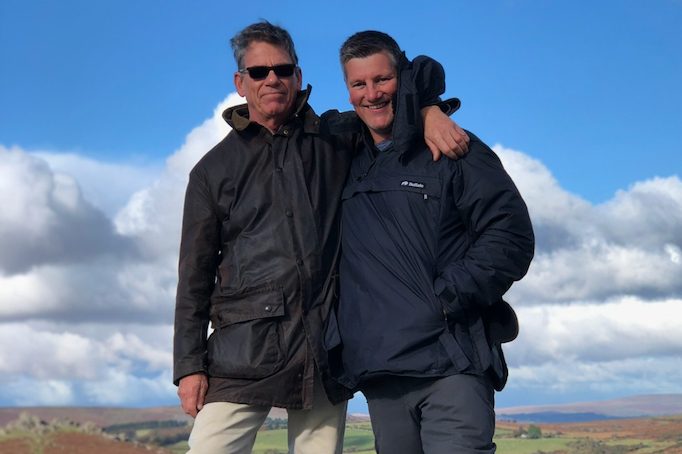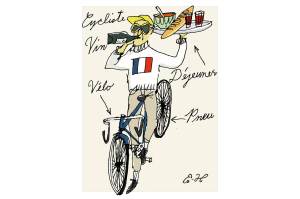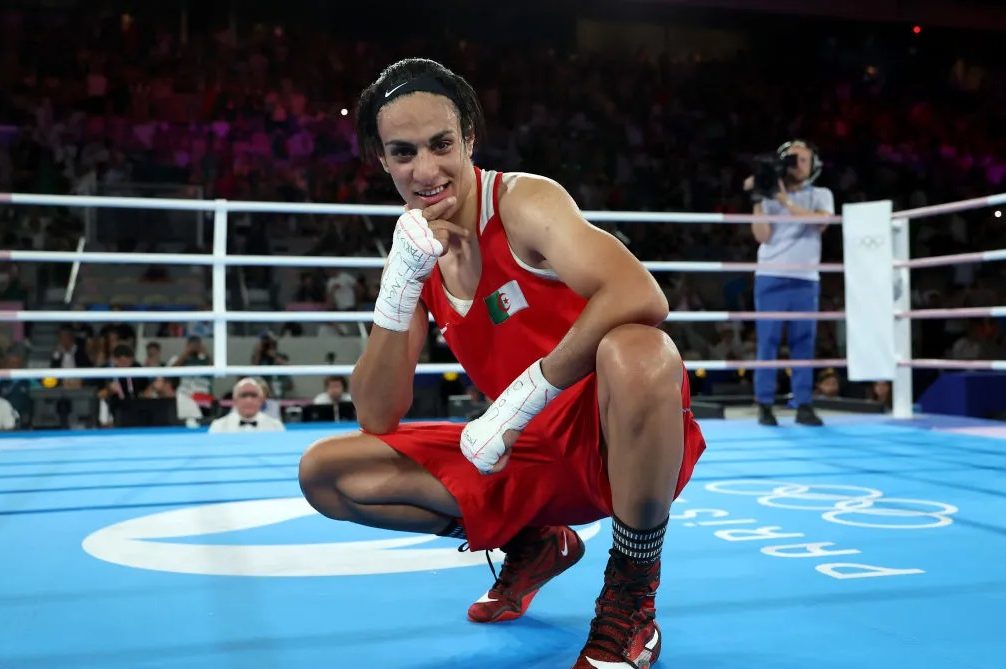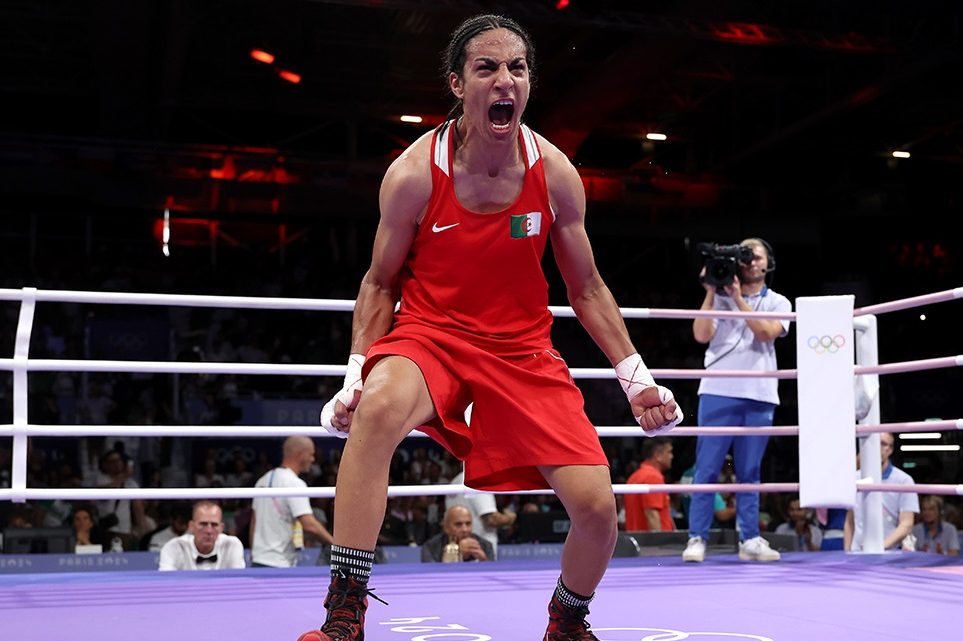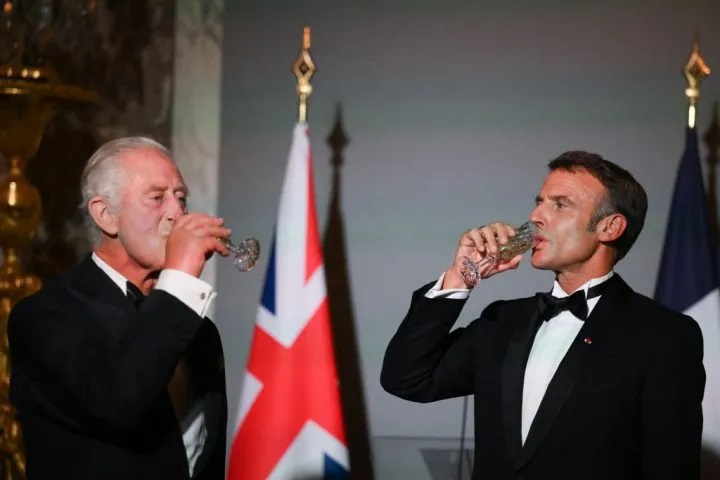My big brother Jeremy Clarke, or “Jum” as he is affectionately known by me and my sister, was the most voracious reader of books you’ll probably ever meet. He will be known to most of you as a writer — The Spectator’s Low Life columnist — but to me he was a reader. He had hundreds upon hundreds of books and had read them all at least twice.
He read standing up, sitting cross-legged in a chair, lying on his bed through the the night or throughout the day, with brief pauses for mundane physical necessities such as eating a meal or making a cup of tea or going to the toilet. I think he could even go a long time without those things if it was a good book. I suppose it’s what enabled him to write so well.
He rarely referenced the books he had read but you knew they were packed into every carefully constructed sentence. Yep, he was a reader all right. His favorite writer was Thomas Hardy and his favorite poem, “The Self-Unseeing.” It suited his melancholy streak.
We rarely talked about faith, but when we did it was funny
Jeremy also wrote from experience. If he hadn’t been anywhere or done anything, he often found it difficult to write a column. He read people and places; expressions on faces. He wrote with brutal honesty; sometimes too much so.
He lived for a time with our mother in a big old house that faced the sea in the South Hams of Devon. Despite all the large, bright rooms, he chose a cramped bedroom with a dirty, opaque skylight and a small window overlooking the walled back garden. It was dark and uninviting, but he liked it that way. Jeremy didn’t like anything ostentatious or showy — and perhaps he thought the sea view might have distracted him from reading.
He used a separate room for writing. His writing desk was an old Ercol table that used to be the family dining table. He had three or four old typewriters and you could sometimes hear him bashing out his daily journal on one of them. He wrote every day — I don’t know what — then locked it away in a drawer. I just heard him write it. He would bash on that old typewriter, then pause, mutter something to himself, then let out one of those low hiccoughing laughs of his at something that had amused him, then carry on bashing it with two fingers.
He was a complicated character, my brother, but I loved him. Given our age difference he had been more like a dad to me than my father, who was always away working. When I was young, we played intricate battles of soldiers on landscapes made of papier-mâché that we had built together and we fired matchsticks out of mini spring-loaded canons at one another’s armies.
He once shot me in the knee with an air gun whilst aiming at a tin dog bowl I held over my head. I still have the scar.
Another time he worked in a chemical factory and bought some of the chemicals home. I don’t know what he wanted them for but he spilled them in the garage and dad was really mad. The garage always smelled of rotten eggs after that.
He didn’t get on with our father. I remember one time, Jum turned up on the doorstep after several months away wearing green and red feather earrings and had a fight with dad. I don’t know what made them both so mad but I had to break it up. They really didn’t get on.
He was always kind to me though. As adults, whenever I visited Mum’s house, she would ask me to take him out for a walk with the dogs. He was sometimes depressed or in a funny mood and Mum would whisper it quietly with a pained expression. He always seemed to enjoy a walk once I’d prized him out of his room and we would talk a lot.
We both loved dogs and West Ham and we appreciated the local countryside and sea views. I provided the dogs; the coast path and beach near to Mum’s house provided the views. Sometimes we would meet and walk on Dartmoor together too.
Then we both got prostate cancer — him first — then me. And now he’s gone
I just read The Catcher in the Rye as I’d never read it before. I expect my brother had read it at least twice, though I don’t remember seeing it among his hundreds of books. Jeremy reminds me of the kid in the book: I think it’s the way that he doesn’t easily fit in with the usual conventions and thinks most people are in some way “phony.” He wouldn’t use that word but he would probably say he was phony too if we had the chance to talk about it.
He would just do things for the hell of it and went a bit mad when he had a drink. He had a good sense of humor, though, and we always had a laugh together. I think it was one of his heroes, Churchill who said, “Never trust a man who has not a single redeeming vice” — and on that basis my brother was entirely trustworthy. You just had to be careful sometimes as he was extremely sensitive.
Mum always said something about a girl breaking his heart when he was young but I’m not sure it’s that. Not only that, I mean. He had a dreadful memory and always forgot things: train tickets, passports, anything important. He forgot to get on trains and forgot to get off them. He left things on planes and on trains and in the back of taxis.
“Awww I’m such an idiot!” he would say.
His mind was always somewhere other than where it was meant to be. But he remembered the funniest details and knew how to make you laugh. He remembered to laugh at himself; that’s the blessing and curse of the writer, I think.
We both have a Christian faith; Mum’s influence, I suppose. But we each came to it in our own way. You couldn’t say he was a Christian because he somehow inherited it. You couldn’t make him do anything he didn’t want to do — especially something he thought false or pretentious. He went up to the front of one of those Billy Graham concerts in the Seventies and gave his heart to Jesus.
We rarely talked about faith, but when we did it was funny. He once told me that when one of his grammar school teachers earnestly mentioned that he was a humanist, young Jeremy laughed right in his face.
I don’t know if he meant that he found the concept of humanism patently absurd or the word funny in itself; or that it was like a terrier that announced it had disavowed its nature and had given up chasing rabbits. And you just knew that dog was going to chase and kill a rabbit as soon as it saw one. I don’t know, maybe all of them, but we laughed like drains.
Then we both got prostate cancer — him first — then me. And now he’s gone.
I can’t believe he managed to write his weekly column for The Spectator, even on his deathbed. He kept his mind and sense of humor to the very end.
He died in the little cave house in France that he shared with his wife Catriona. If he could write another column, he’d probably write about how they rolled a big stone over the entrance of the cave and that was the end of that.
In the words of another of our favorite writers, P.G. Wodehouse: “Memories are like mulligatawny soup in a cheap restaurant. It is best not to stir them.”
Our memories of my brother, Jeremy Clarke (Clarice, Jel, Jum) will be as different as the many soups we have all tasted in a thousand restaurants. On one thing I think we can agree: he wasn’t phony at all.
This article was originally published on The Spectator’s UK website.



